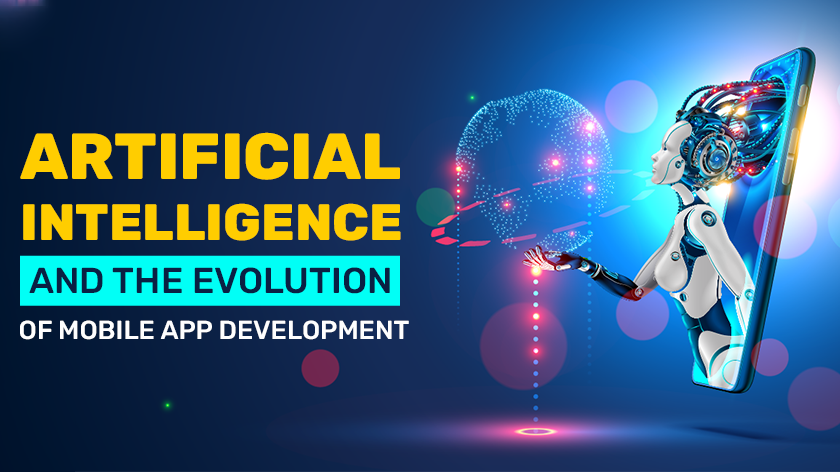The Development of Mobile apps is being revolutionized by the integration of artificial intelligence (AI) into the entire procedure. AI can improve user experiences, expedite development processes, and produce apps that are more intelligent and intuitive. AI is expected to have a far greater effect on how apps are developed in the future as mobile computing develops.
The Impact of AI on Mobile App Development
AI technologies are transforming how mobile apps are developed and how they function. Here are some of the key areas where AI is making a significant impact.
Personalized User Experience:
- Recommendation Systems: AI algorithms analyze user behavior to provide personalized content and product recommendations. Apps like Netflix and Amazon use AI to suggest movies and products tailored to individual preferences.
- Voice Assistants: AI-driven voice assistants, such as Google Assistant, Alexa, and Siri, provide hands-free functionality by allowing users to search for information, accomplish tasks, and operate smart devices through voice commands.
Enhanced app security
- Fraud Detection for Enhanced App Security: Artificial intelligence can spot abnormalities and patterns in user behavior that can point to fraud. Artificial intelligence is used by mobile banking and finance apps to instantly identify and stop fraud.
- Biometric Authentication: AI makes security better by limiting access to the app to authorized users by using biometric authentication techniques like fingerprint scanning and facial recognition.
AI-Powered Customer Assistance: Chatbots and Virtual Assistants:
Chatbots with AI capabilities offer immediate customer service by managing queries and effectively addressing problems. By understanding natural language and responding appropriately, these chatbots increase customer pleasure.
Efficient Development Process
- Automated Testing: AI automates the testing process, identifying bugs and issues faster than manual testing. This speeds up the development cycle and ensures a higher-quality app.
- Code generation: AI tools can assist developers by generating code snippets and suggesting improvements, reducing development time and minimizing errors.
Real-World Applications of AI in Mobile Apps
A wide range of smartphone apps from diverse industries now use artificial intelligence. Here are a few noteworthy instances:
- Fitness and Health: AI is used by apps like Fitbit and MyFitnessPal to evaluate user data and offer individualized dietary and exercise suggestions. AI systems track workout habits and keep an eye on health. indicators, and recommend changes to meet fitness objectives.
- E-Commerce: AI enhances the shopping experience by providing personalized product recommendations, visual search capabilities, and virtual try-on features. For instance, the Sephora app uses AI to allow users to try on makeup virtually.
- Travel and Hospitality: AI-powered travel apps like Hopper predict flight and hotel prices, helping users find the best deals. Virtual travel assistants provide personalized travel recommendations and assist with booking and itinerary management.
- Entertainment: Streaming services like Spotify and YouTube use AI to curate playlists and suggest videos based on user preferences, ensuring a highly personalized entertainment experience.
Prospects for AI-Assisted App Development
Some Trends are Expected to shape the future of Mobile App Development.
Integration of Virtual Reality (VR) and Augmented Reality (AR): AI will improve mobile apps’ AR and VR experiences, making them more engaging and dynamic for training, education, and gaming.
Improvements in Natural Language Processing (NLP): NLP research will result in chatbots and voice assistants that are more intelligent, allowing for more intuitive and natural interactions between users and apps.
Predictive Analytics: Predictive analytics powered by AI will become widely used. allowing apps to anticipate user needs and provide timely guidance and solutions.
Context-Aware Computing: Artificial intelligence (AI) will be used by mobile apps to understand and respond to the user’s environment and circumstances instantly.
Conclusion
AI is changing the game when it comes to developing mobile apps, providing previously unheard-of chances for creativity and improvement. Developers may produce more efficient, safe, and customized apps that meet customers’ changing needs by utilizing AI. Future mobile apps promise to be increasingly dynamic and intelligent as AI technology develops, radically altering how we interact with our electronic devices.
Looking to improve your mobile app with AI? XcelTec can help you build smarter, more secure, and user-friendly apps. Get in touch with us today!
For more information, visit our website : https://www.xceltec.com/
 :
https://www.pinterest.com/xceltec0192/
:
https://www.pinterest.com/xceltec0192/












